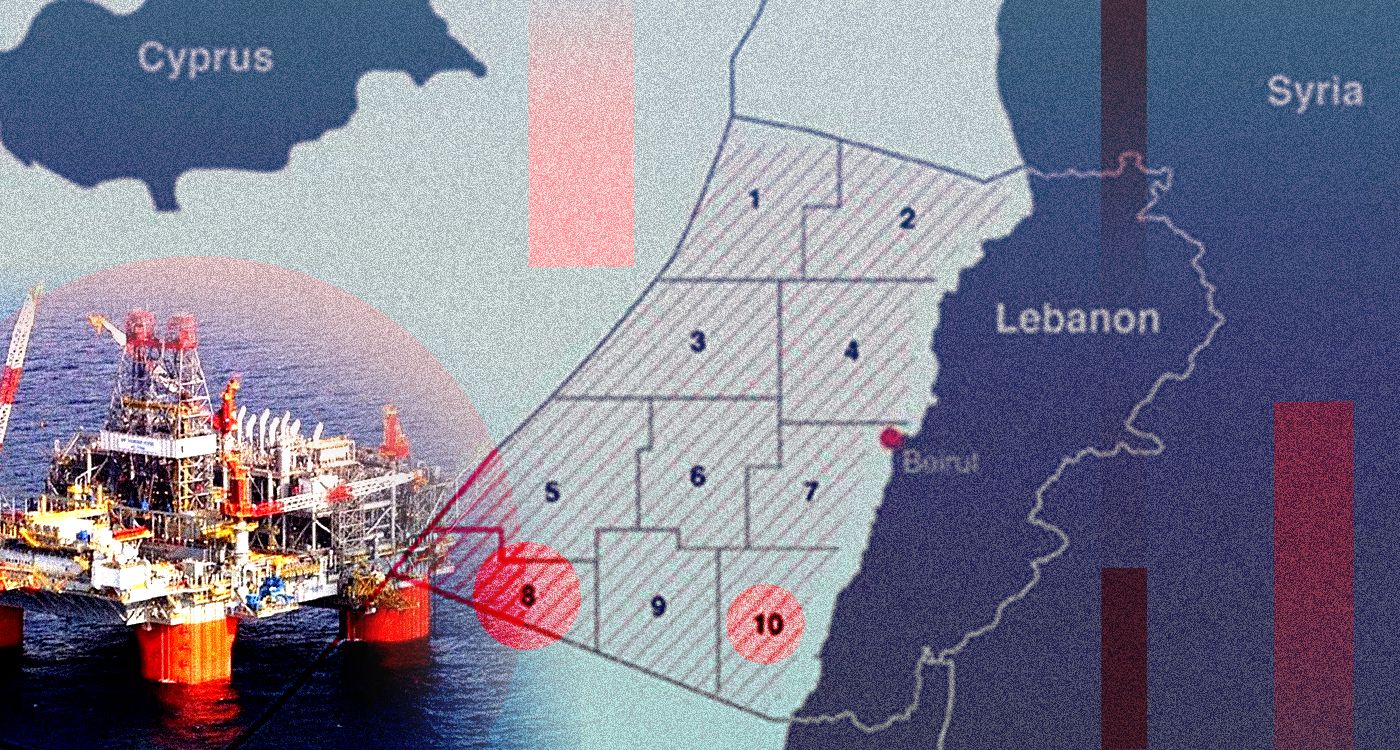
Lebanon will close, on March 17, the third round of bidding for gas exploration in blocks 8 and 10 of its Exclusive Economic Zone (EEZ), located off its coast. This project could be a major breakthrough for the country in terms of energy security and economic development. These bids are seen as an opportunity to attract foreign investment and tap into the potential of its natural resources.
Lebanon appears to be preparing to open new horizons in the exploitation of its offshore energy resources, with the announcement in mid-March of the results of the third bidding round for gas exploration in blocks 8 and 10 of its EEZ. These blocks, located off the Lebanese coast, are attracting interest from international oil and gas companies as part of a new phase aimed at securing investments and strengthening the country's energy independence. This initiative could mark a crucial turning point for the Lebanese economy, which is facing major challenges.
Wissam Chbat, a board member of the Lebanese Petroleum Administration (LPA), told This is Beirut that the third round of bidding would conclude on March 17, with the first phase of offshore exploration licensing having started in 2013 and ended in 2017. At that time, the Lebanese government had offered five blocks (1, 4, 8, 9 and 10). However, due to various obstacles, including political tensions and border disputes, the process was delayed. Only blocks 4 and 9 were awarded.
The second phase began during the COVID-19 pandemic and was extended multiple times, finally ending in October 2023. A single bid was then submitted by a consortium led by TotalEnergies, along with ENI and Qatar Energy, for the exploration of blocks 8 and 10, located near block 9. However, the Lebanese government was not satisfied with the details of the offer and tasked the Ministry of Energy and Water with negotiating with the consortium, particularly regarding the proposed exploration timeline. In January 2024, the Lebanese government gave conditional approval to the offers submitted by the consortium, but disagreements remained. As a result, the signing did not take place, and the awarding process fell through. It should be noted that bidders have a deadline (one month in this case) to validate the bid. This deadline is specified in the bidding documents.
Then, the third bidding round was launched last February and was extended until March 17, 2025. Chbat clarified that “this phase could once again be extended, especially if new companies show interest in exploration, to avoid closing this phase and opening another, which would waste valuable time.”
How many companies have submitted a bid? “None so far,” he replied, before adding, “Usually, bids are submitted on the last day. So, we have to wait until March 17.”
He noted that bidders must comply with the tender specifications, which include qualification criteria—conditions on which the award is based, often to ensure that the bid meets legal requirements or regulations related to the necessary license for project execution. Among these criteria, companies must have offshore gas production activities, and financially, their total assets must exceed $10 billion.
Chbat explained that if the criteria are met, the company is pre-qualified. The company that meets all the criteria and tender specifications will then be submitted to the Council of Ministers, which will mandate the Minister of Energy to grant the exploration license.
What About Block 9?
Regarding Block 9, Chbat admitted that there is “nothing new,” and added that Lebanon is waiting for a signal from the French oil giant TotalEnergies. It is worth recalling that the relationship between the Lebanese Ministry of Energy and the French oil giant TotalEnergies has deteriorated in recent months because a report on the drilling of Block 9 has not been submitted to the Lebanese authorities.
Chbat stated that “the dispute between the Ministry of Energy and TotalEnergies concerns the report that the oil company did not submit at the end of the drilling of Block 9.” He recalled that the report was supposed to be submitted in April 2024. What is the French oil giant's response? “The report was not provided by management, and it would not change anything since gas is nonexistent.” The ministry, for its part, insists that it needs this report, especially since this document is mentioned in the contract.




Comments